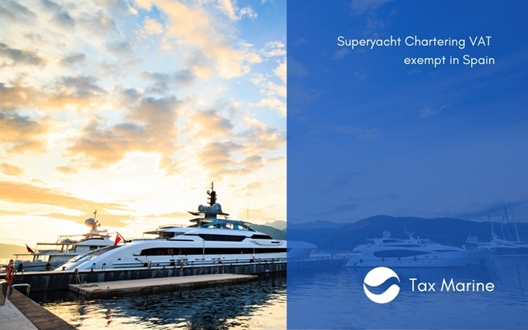It is well known among yacht professionals and especially those involved in superyacht chartering that the VAT regime in Spain has been always particularly tough. Spain, unlike other surrounding countries, as France or Italy, did not implement in National legislation the possibility of a lower effective taxation for charters starting in Spain and cruising into international waters, on the basis of the Use and Enjoyment principle laid down in the EU VAT Directive, resulting that charters starting in Spain have always been fully VAT taxed at 21%, the Spanish standard rate.
However, what is not so well known is that the Use and Enjoyment provision could also tax those charters starting outside the VAT area and entering the territory of the Community -Article 58.b, VAT Directive. That principle is indeed applicable in Spain. In this regard, the wording of the Spanish VAT law in force until 31st December 2020 stipulated that, among other services, the hire of means of transport made available to clients outside the VAT area would be subject to Spanish VAT on the part of the journey taking place in Spanish territory.
Nevertheless, the Spanish government has introduced a slight but significant amendment to the VAT provision that sets out this principle. In the State General Budget Law for 2021, a mention was included to the Spanish special territories of Ceuta and Melilla –which are outside the VAT Area, EU Customs Territory and Excise Duties Area- and the Canary Islands -which are outside the VAT Area, but within the EU Customs Territory and Excise Duties Area. The modification of the VAT law implies that any charter starting in any of the above places would no longer be subject to Spanish VAT but to the local taxation applicable there.
This new approach is a very interesting opportunity to apply tax planning to charter operations. Although this option might not be suitable in all cases, depending on the yacht logistics and a proper planning of charter operations, it could represent a significant tax saving and a selling point for clients starting a charter in southern Spain. Needless to say, all that without even considering the natural and cultural wonders that the region has to offer.
Thus the possibility of VAT-free chartering in Spain is available. It should be noted that alternative indirect taxation would be applicable to charters starting in these locations, however the actual taxes could be as low as 0,5% on the charter fee.
It would be interesting to see how this new approach might clash with the interpretation of the Use and Enjoyment regulation in other Member States that effectively apply Article 58.b of the VAT Directive.
In any case, this is a very positive and interesting opportunity for the Spanish yachting Industry.
If that was of your interest, you can also watch a video version of the report. You can also read similar publications in our Knowledge Bank.






